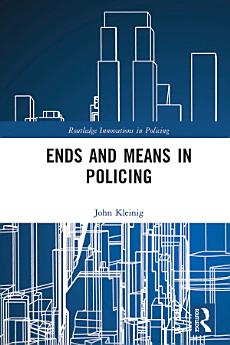Ends and Means in Policing
Über dieses E-Book
This book explores this question from a philosophical perspective. The relationship between ends and means has a long and contested history both in moral/practical reasoning and public policy. Looking at this history through the lens of policing, criminal justice philosopher John Kleinig explores the dialectic of ends and means (whether the ends justify the means, or whether the ends never justify the means) and offers a new, sharpened perspective on police ethics.
After tracing the various ways in which ends and means may be construed, the book surveys a series of increasingly concrete issues, focusing especially on those that arise in policing contexts. The competing moral demands made by ends and means culminate in considerations of noble cause corruption, dirty hands theory, lesser degradations (such as tear gas, tasers, chokeholds, and so on), and finally, those means deemed impermissible by the majority in Western culture, such as torture.
Autoren-Profil
John Kleinig is an Emeritus Professor of Philosophy in the Department of Criminal Justice, John Jay College of Criminal Justice, and in the PhD Program in Philosophy, Graduate School and University Center, City University of New York. He is also an Adjunct Research Professor at Charles Sturt University, Australia. He is the author/editor of 22 books.






